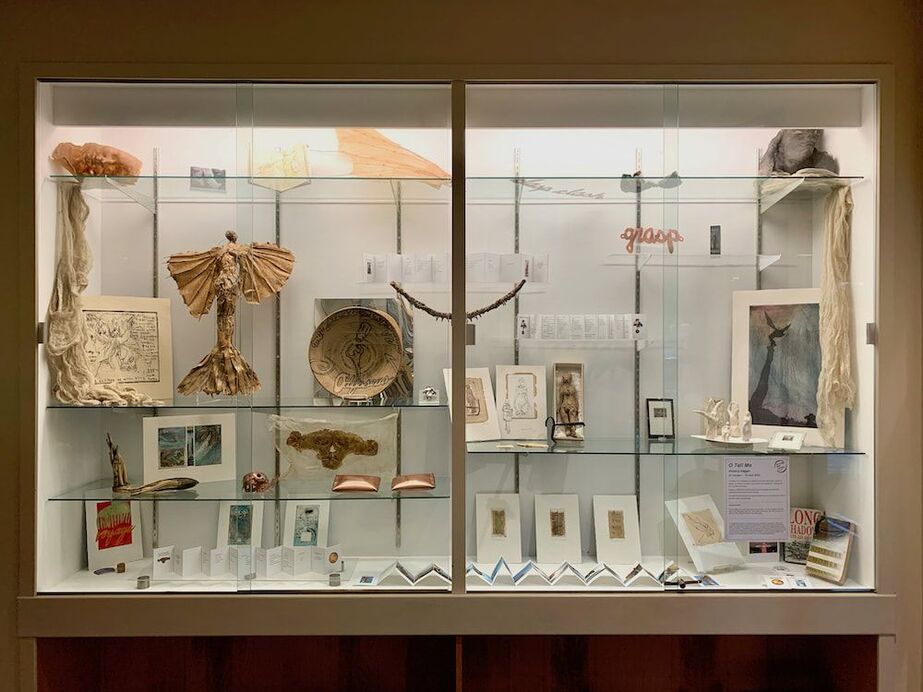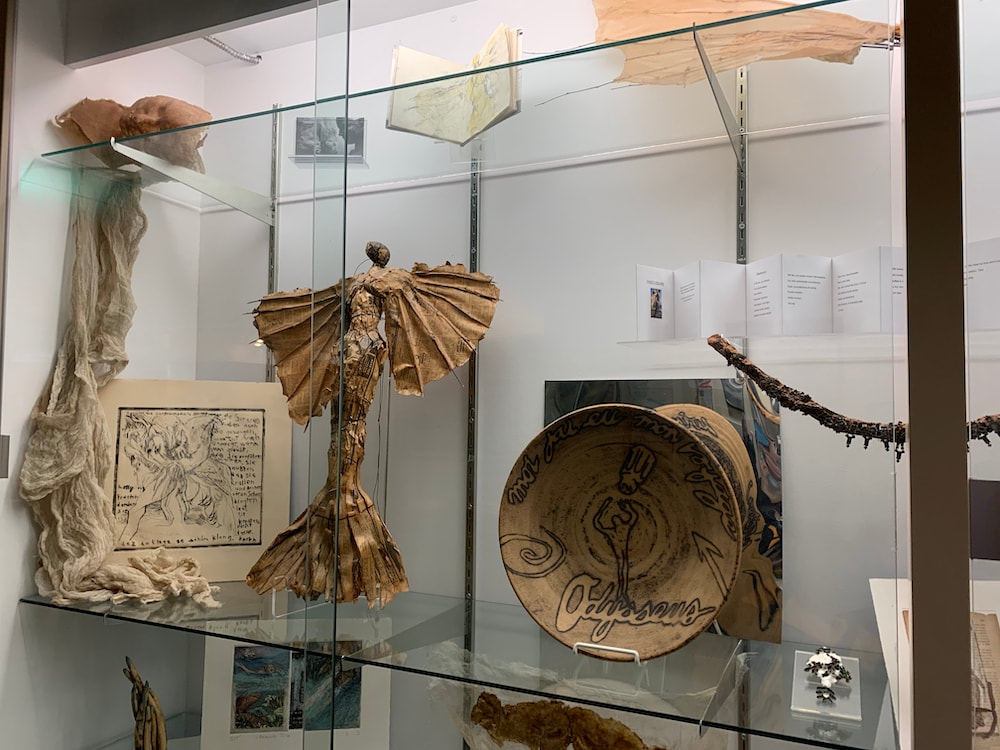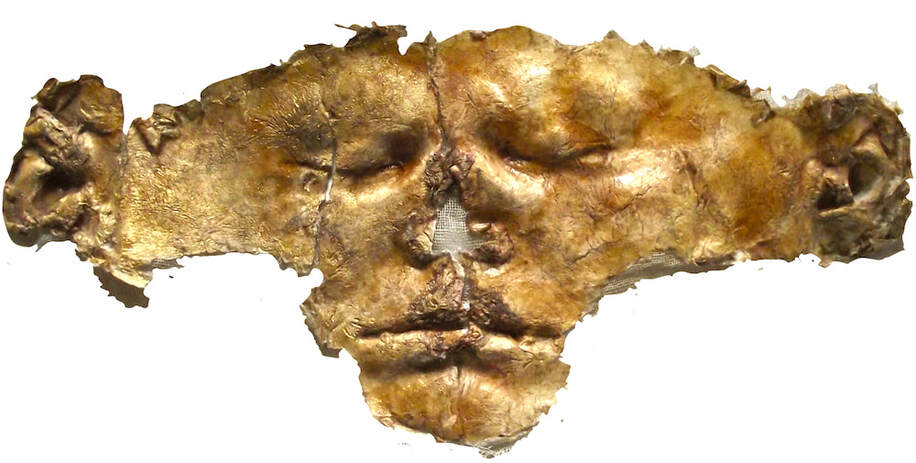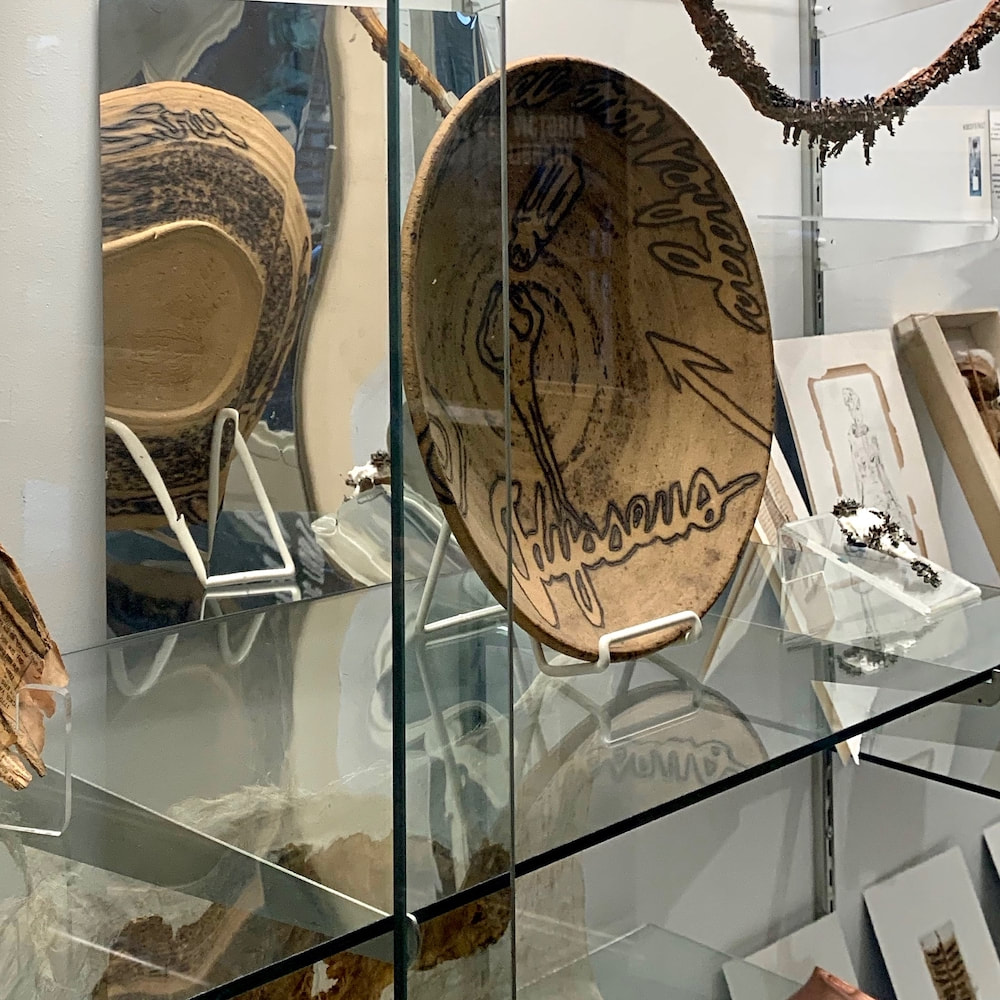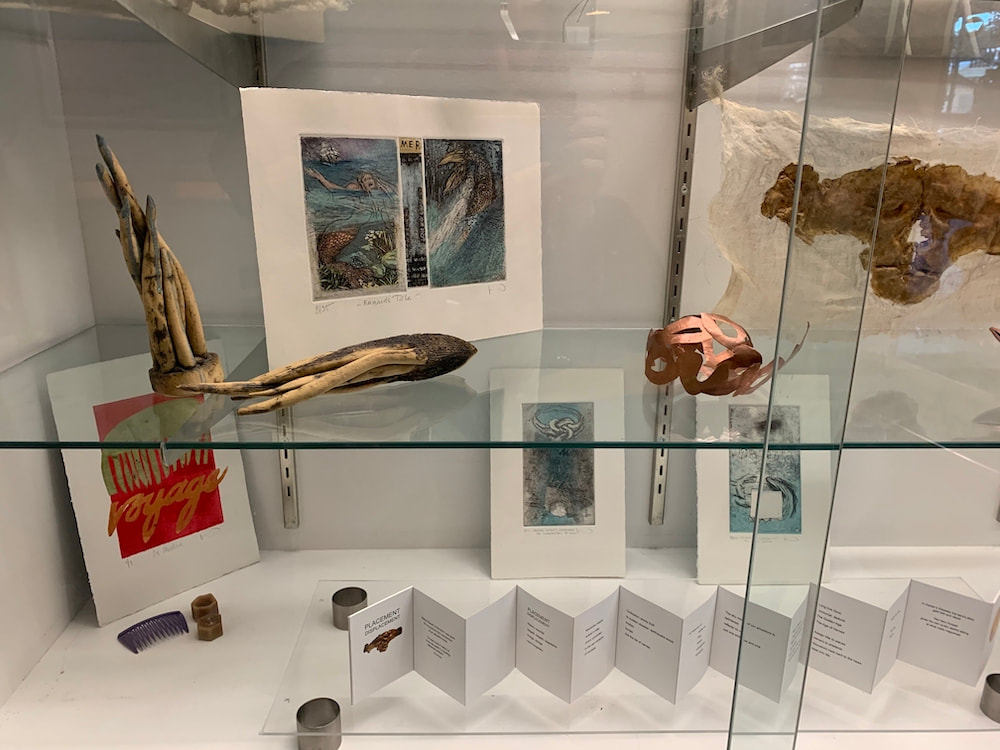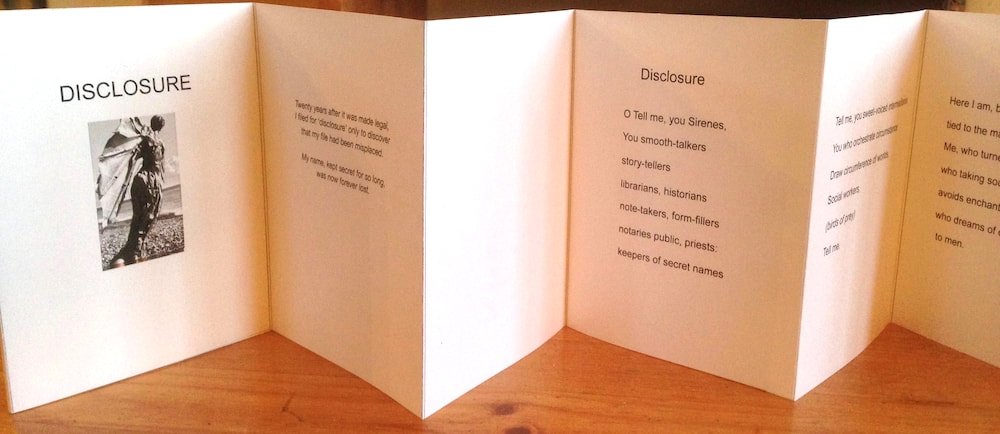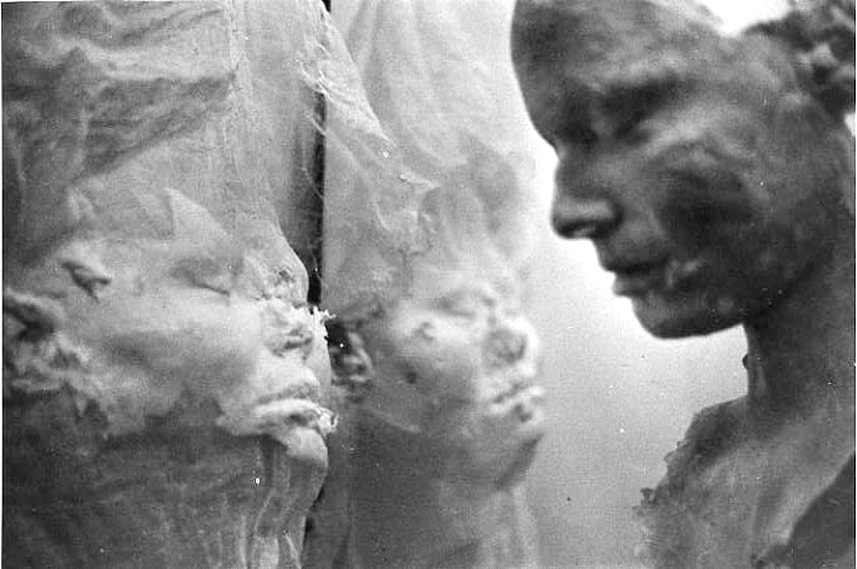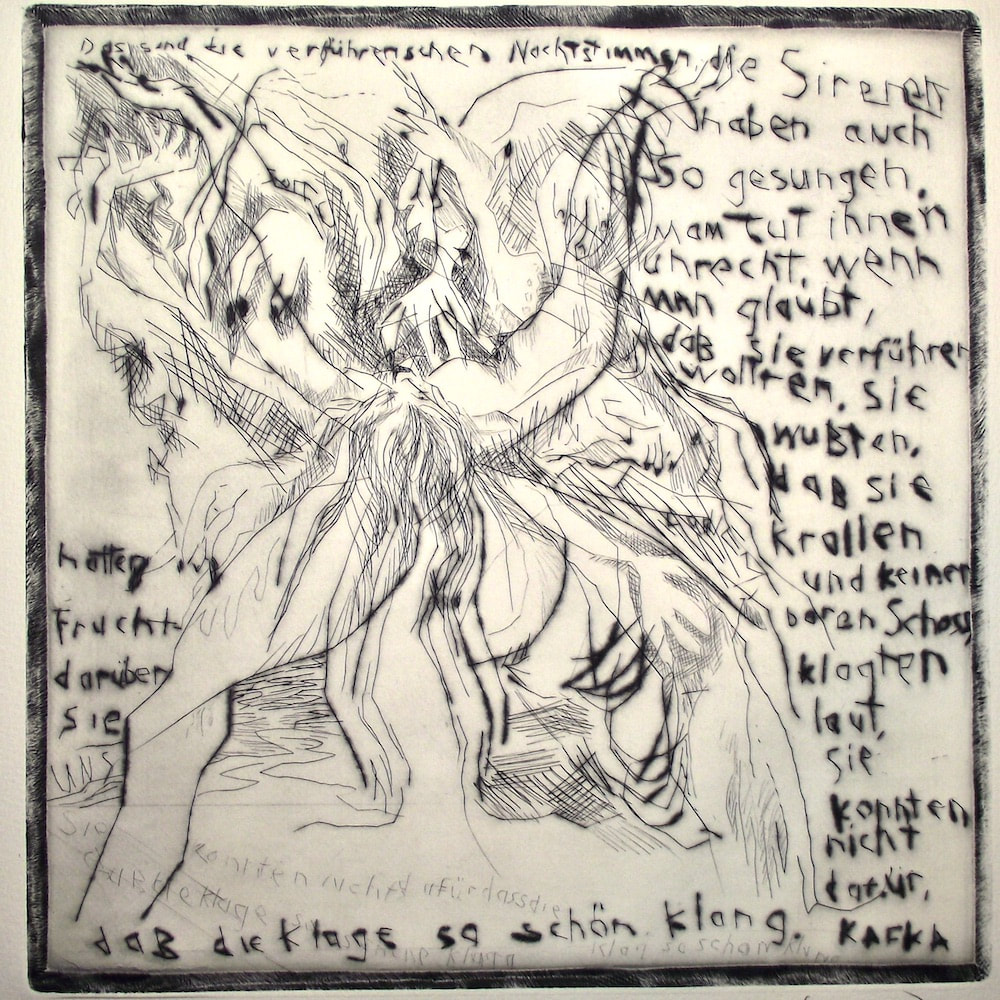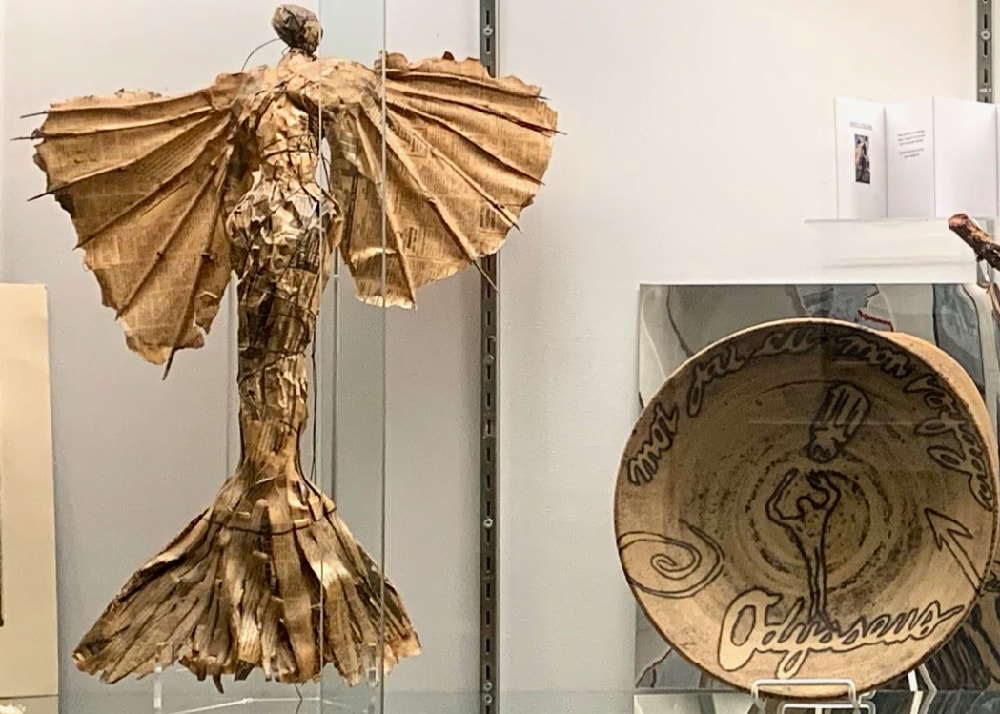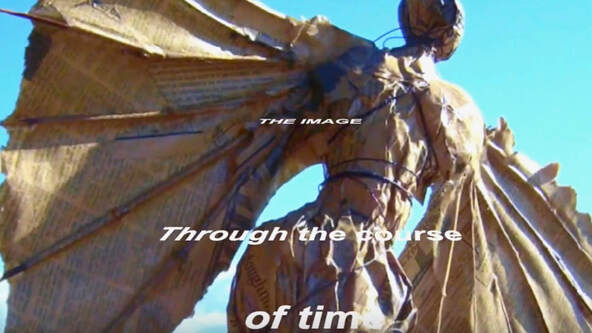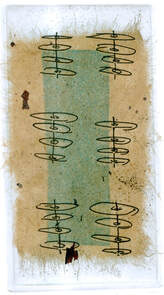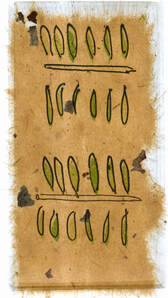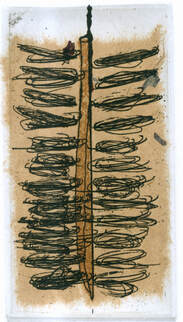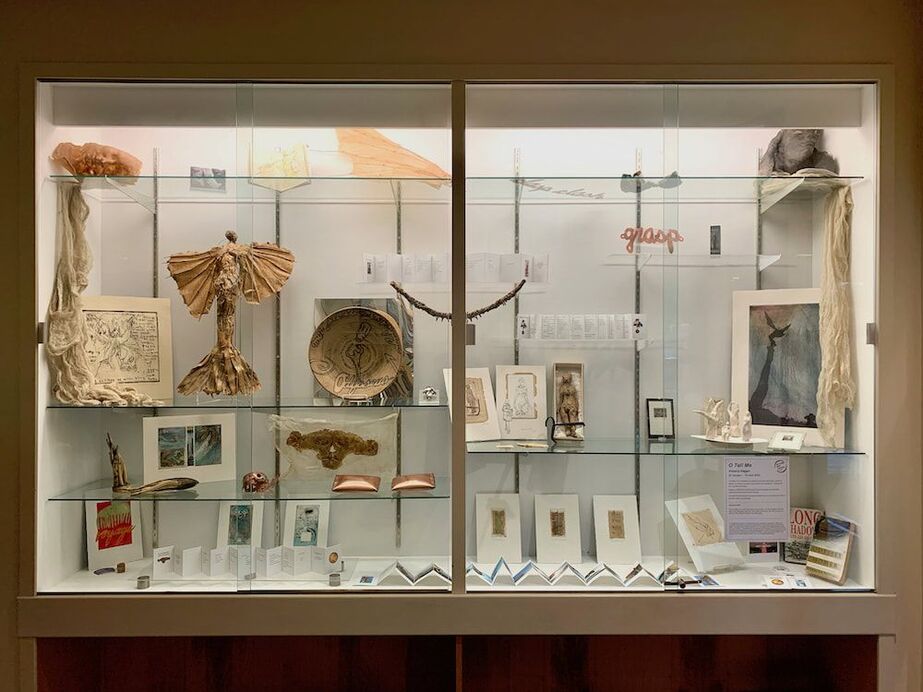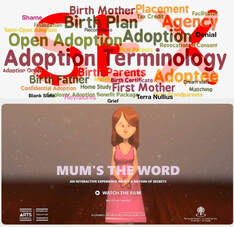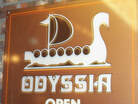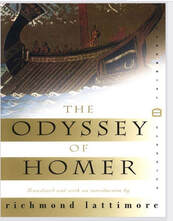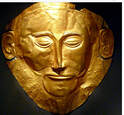"O Tell Me"
Victoria Arts Council
Community Satellite Showcase
20 January – 18 April 2023
GVPL Bruce Hutchison Branch Library
Saanich Commonwealth Place
4636 Elk Lake Drive, Vancouver Island, BC
Victoria Arts Council
Community Satellite Showcase
20 January – 18 April 2023
GVPL Bruce Hutchison Branch Library
Saanich Commonwealth Place
4636 Elk Lake Drive, Vancouver Island, BC
This installation "O Tell Me " is like a display of archaeological 'finds' from 'Antiquity'. The 'artifacts', images and text, were found and selected from a body of artwork spanning forty-five years. They are the landmarks on a journey of discovery.
Digging through my studio I discovered fragments and incomplete or forgotten works. By imagining their placement together in an installation their purpose became apparent.
A mask pulled from a plaster cast years ago could now be 'recognized' and given a name, "After Agamemnon".
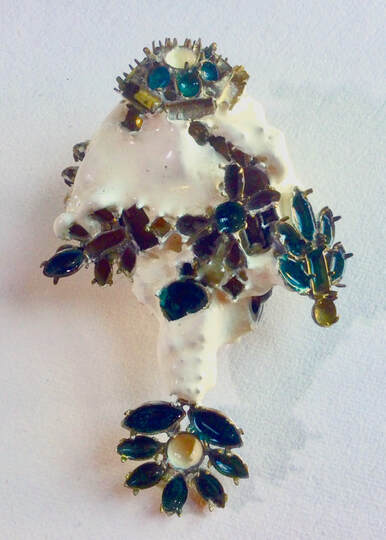
"Bijoux pour une Sirene sans Mer" (mother/sea) (Brooch) plaster, shellac, costume jewellery findings, acrylic 3 1/2" h built by process of accretion, layer upon layer of plaster and acrylic enamel. It follows the European 16th -18thC tradition of sea-themed jewellery made from large 'deformed' baroque pearls.
A stick of plaster encrusted with brass 'findings' is discovered to be part of a brooch and necklace set. I filled the empty cups with clear gloss acrylic. Over time, blue patina 'gems' appeared.
The 'artifacts' speak of the task of piecing together a narrative without historical records. As the artist, I both lay the trail and follow the trail.
This is the archaeology of the buried self.
"O Tell Me " is a metaphorical journey using images, words and objects from a process of accretion, accumulation, and convergence.
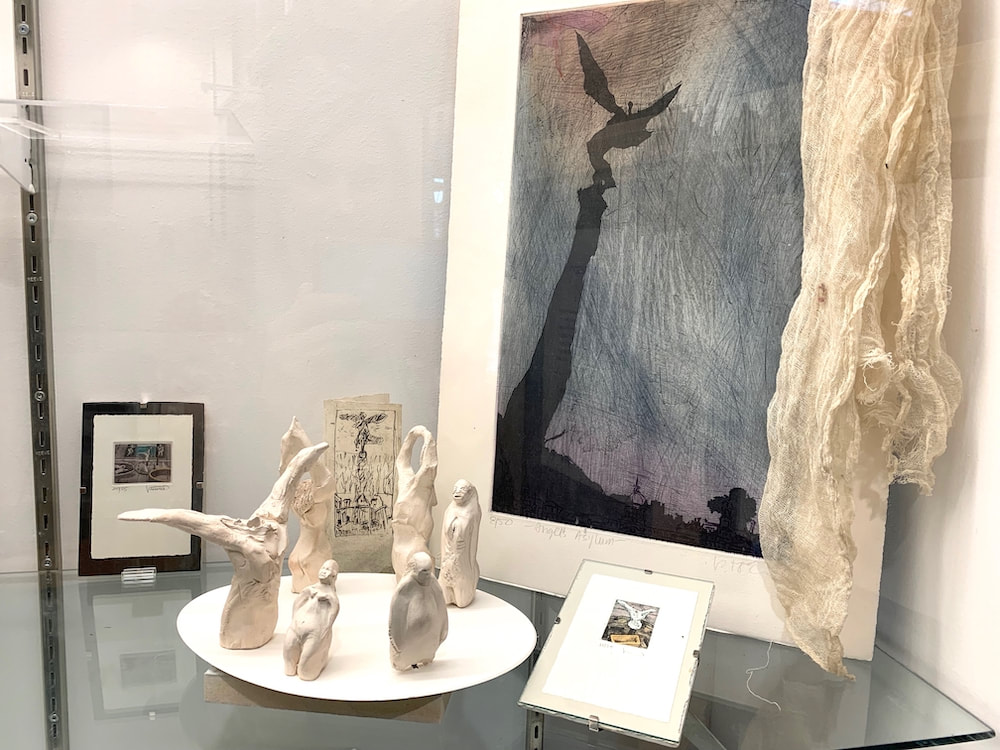
Underlying my work is a fascination with modern concepts of reproduction and multiplicity, and the ancient act of leaving traces and imprints.
Investigating the depth and resonance of my cultural ancestors gives me a perspective on what is lost when cultures are destroyed.
The accordion books are a group of poems called "Homecoming".
'Homecoming' is a modern adoption term and 'Homecoming' is a major theme in Homer's Odyssey.
I was brought up in a thoroughly scriptural culture. Tracing a literary lineage from "The Little Mermaid" of Hans Christian Anderson to the Sirenes of Homer appealed to me as a way to authentically claim heritage.
As an adoptee, at home with the sense of straddling two worlds, I adopted The Odyssey as the fable or parable, a fictive world through which I could allow myself to tell myself my story.
As I wrote I assumed all roles: male /female, monster / god, coward / hero. I told myself the unspoken, unspeakable story that had been officially erased. I must deduce a past from the evidence embeded in me.
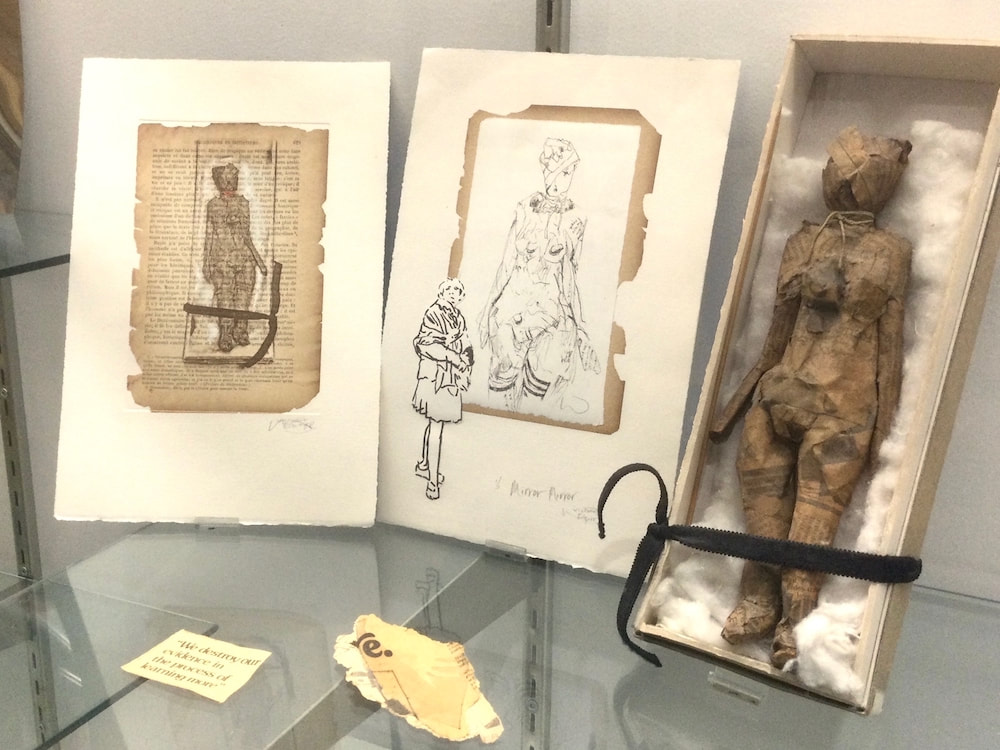 " ", Mirror, Mirror" photo & drawings on polymer litho, chine collé, Rives BFK 7.5 x 11"
" ", Mirror, Mirror" photo & drawings on polymer litho, chine collé, Rives BFK 7.5 x 11"
In the 1950's a basis for a successful adoption was a complete rupture of bond and information. For me my 'closed' or "blank slate' adoption, with its with redacted birth certificate, posed some challenging ontological questions into the nature of the 'Real'. Is she your "real" sister? Who are your "real" parents? Five-year olds are curious.
I look in the mirror as if examining an 'artifact'. I must deduce a past from the evidence embedded in me.
". . .and the Sirenes also sang this way...you do them an injustice if you believe they wanted to seduce you and lead you astray. The Sirenes knew they were clawed and barren, and so they loudly wailed. They couldn't help it that their cries sounded so beautiful."
(In my loose translation) . . .Franz Kafka, Parables and Paradoxes
(In my loose translation) . . .Franz Kafka, Parables and Paradoxes
This notion of 'blank slate' or 'Tabula Rasa' is culturally embedded in European history as part of a rationale for our colonialism. 'Terra Nullius'; there was no one here before us, nothing before now. The absence of knowledge of 'the past' paves the way for an un-encumbered 'now'. Reconciliation requires self-recognition, requires looking, digging up, acknowledging.
Yellowing with time, the paper remembers.
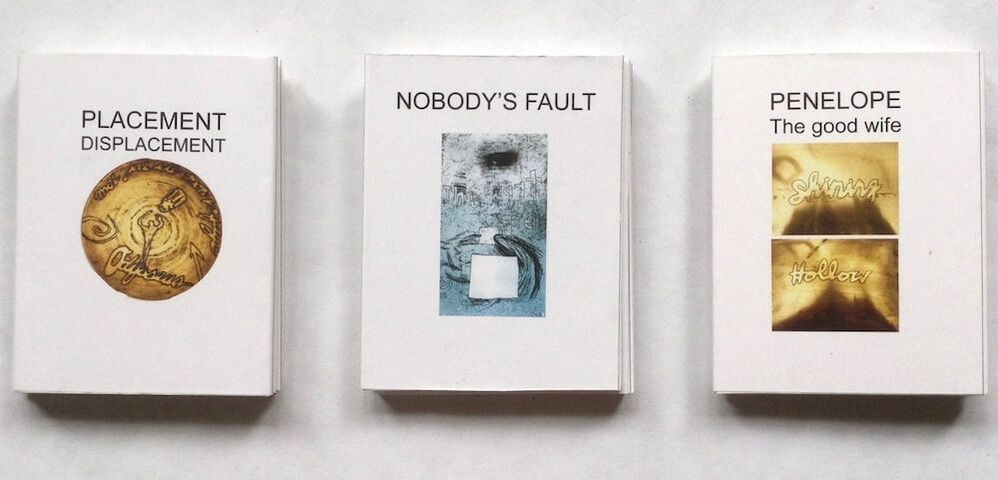
Penelope the Good Wife (forward to the poem)
These days, the first day of living in an adoptive family is sometimes celebrated like a birthday and called 'Homecoming'
Homer’s Odyssey is the story of the eponymous hero's return from war. His homecoming was twenty years in the making.
“To lose trust in history is to be set adrift in a floating, detached present, . . .” Erna Paris, Secrets and Lies
Placement Displacement (forward to the poem)
Being ‘Placed’ is the term I was given for my journey from somewhere to an adoptive home.
In Homer’s Odyssey the hero's story gets told and retold. The hero himself gives his own public tearful telling of what really happened.
Disclosure (forward to the poem)
Twenty years after it was made legal, I filed for ‘disclosure’ only to discover that my file had been misplaced. My name, kept secret for so long, was now forever lost.
In Homer's Odyssey, the Sirenes’ Song promised to disclose godlike knowledge and power to those greedy, reckless or brave enough to listen.
Nobody' Fault (forward to the poem)
Odysseus spoke “Cyclops, you ask me for my famous name . . . Nobody is my name.“
later . . .
“Nobody is killing me by force or treachery.” cried The Cyclops.
In Homer’s Odyssey we find the oldest tricks in the book
These days, the first day of living in an adoptive family is sometimes celebrated like a birthday and called 'Homecoming'
Homer’s Odyssey is the story of the eponymous hero's return from war. His homecoming was twenty years in the making.
“To lose trust in history is to be set adrift in a floating, detached present, . . .” Erna Paris, Secrets and Lies
Placement Displacement (forward to the poem)
Being ‘Placed’ is the term I was given for my journey from somewhere to an adoptive home.
In Homer’s Odyssey the hero's story gets told and retold. The hero himself gives his own public tearful telling of what really happened.
Disclosure (forward to the poem)
Twenty years after it was made legal, I filed for ‘disclosure’ only to discover that my file had been misplaced. My name, kept secret for so long, was now forever lost.
In Homer's Odyssey, the Sirenes’ Song promised to disclose godlike knowledge and power to those greedy, reckless or brave enough to listen.
Nobody' Fault (forward to the poem)
Odysseus spoke “Cyclops, you ask me for my famous name . . . Nobody is my name.“
later . . .
“Nobody is killing me by force or treachery.” cried The Cyclops.
In Homer’s Odyssey we find the oldest tricks in the book
